U.S. to push steel, aluminum tariffs on E.U., Canada and Mexico
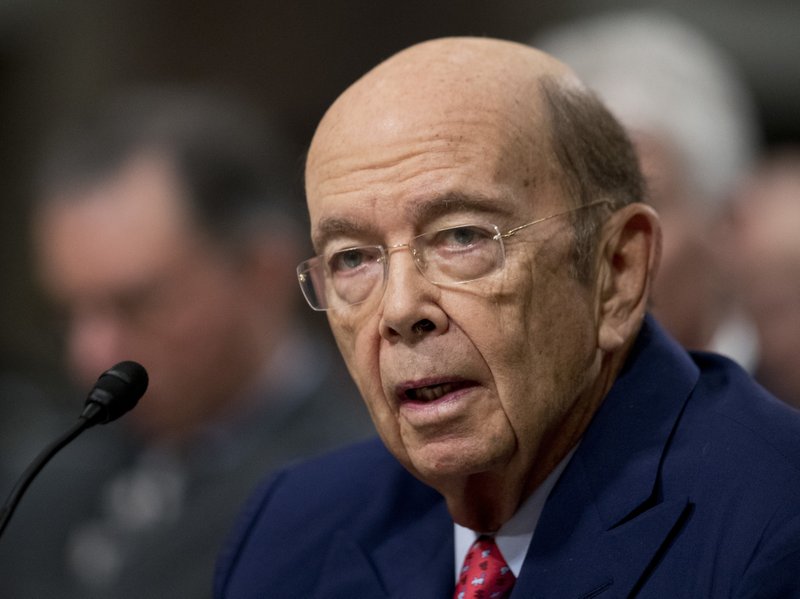
The Trump administration announced Thursday it will impose tariffs on steel and aluminum imports from Europe, Mexico and Canada after failing to win concessions from the American allies. The decision could provoke retaliatory penalties and exacerbate trans-Atlantic and North American trade tensions. Commerce Secretary Wilbur Ross said the tariffs would be 25 percent on steel and 10 percent on aluminum as the administration followed through on the penalties after earlier granting exemptions to buy time for negotiations. Ross told reporters that talks with Canada and Mexico over revising the North American Free Trade Agreement were “taking longer than we had hoped.” Talks with Europe had “made some progress” but not enough for additional exemptions, he said in a conference call from Paris. “We continue to be quite willing and indeed eager to have further discussions,” Ross said. He said he planned to travel to China on Friday for trade talks between the world’s two biggest economies. European officials had braced for the tariffs and the EU has threatened to retaliate against U.S. orange juice, peanut butter and other goods in return. In terms of the NAFTA talks, the tariffs could hinder the negotiations among the North American neighbors. Fears of a global trade war are already weighing on investor confidence and could hinder the global economic upturn. European officials argue that tit-for-tat tariffs will hurt growth on both sides of the Atlantic. Republished with the permission of the Associated Press.
Alabama to send National Guard troops to protect Mexican border

At the request of the Trump administration, Governor Kay Ivey and Alabama Adjutant General, Major General Sheryl Gordon, have approved the dispatch of Alabama National Guard troops to the nation’s Southwest border with Mexico. President Donald Trump sent a memo in April, authorizing the use of National Guard troops at the border, saying “the lawlessness that continues at our southern border is fundamentally incompatible with the safety, security, and sovereignty of the American people,” adding that his administration had “no choice but to act.” The Yellowhammer State has approved the deployment of one helicopter and five personnel members on Friday. The soldiers will be supporting the Texas National Guard and U.S. Customs and Border Protection. “Alabama is committed to ensuring the safety and security of our nation. We have the greatest group of service men and women in the country,” Ivey said. “The Alabama National Guard stands ready to answer the call and we are proud to assist in the Southwest border mission.” The UH-72A Lakota helicopter will be dispatched from Birmingham on Tuesday. Joining the helicopter will be a flight crew and aircraft maintainers from the A Company, 1-114th Aviation Battalion, also out of Birmingham. “The Alabama National Guard is always ready to assist our friends and partners on the border and continue the ongoing mission for homeland security,” Gordon said. “We’re proud our soldiers are mentally and physically equipped to handle the challenges of the task.” The soldiers mission will operate be to provide additional support for observation and tracking of illegal activity around the U.S. border with Mexico. The soldiers will not be conducting law enforcement operations, but will be directed by the Texas National Guard. Alabama is the latest state to send equipment and soldiers to assist Customs and Border Protection (CBP). The last time the Alabama Guard sent Lakotas and crew members to the border was in 2016.
Donald Trump: No immigration deal unless ‘real wall,’ good security
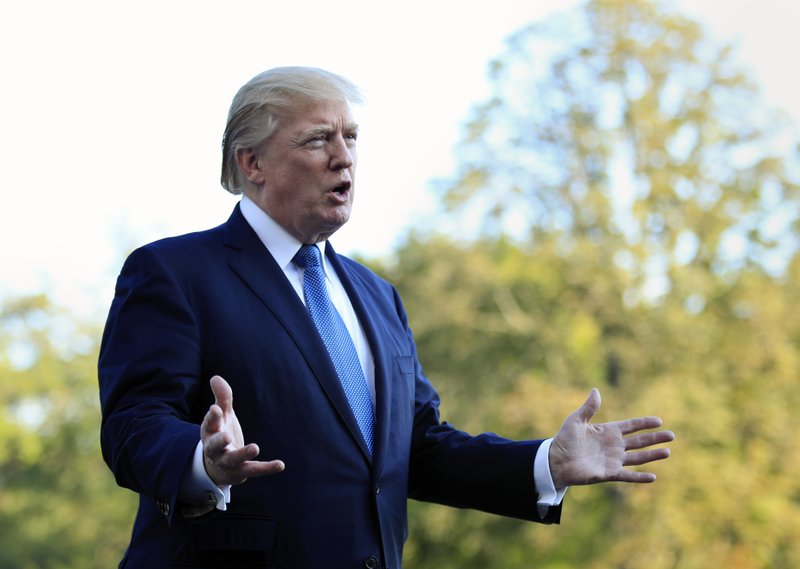
President Donald Trump said he opposes any immigration legislation that doesn’t include “a real wall” along the Mexican border and “very strong border security.” Moderate House Republicans are pushing a deal that could lead to citizenship for young “Dreamer” immigrants brought to the U.S. illegally. But Trump told “Fox & Friends” in an interview that aired Thursday that unless a bill “includes a wall, and I mean a wall, a real wall, and unless it includes very strong border security, there’ll be no approvals from me.” Trump said the United States had “the worst immigration laws in the entire world by far” and said he wanted a comprehensive deal that included all of his priorities. “I think it’s time to get the whole package,” he said. Trump’s comments, taped Wednesday, came as immigration talks are underway among House Republicans, with moderates seeking a way for hundreds of thousands of young immigrants to stay permanently in the U.S. But conservatives say they have no interest in awarding what they call “amnesty” to people who came illegally. Moderates trying to force votes on the issue gained their 21st GOP signature Wednesday. With just four more, they should be able to overcome leadership objections and have votes on immigration bills in late June. House leaders plan a pivotal closed-door GOP immigration meeting on June 7. Trump also took issue with the immigration court system, saying other countries have “security people” who “stand there and say you can’t come in” rather than judges who decide immigration claims. “Whoever heard of a system where you put people through trials? … We’re going to change the system,” Trump said. The administration is dealing with an enormous number of immigration cases along the U.S.-Mexico border, as a sharp increase in deportation arrests under Trump has pushed the backlog above 650,000 cases. Attorney General Jeff Sessions, who oversees immigration courts, has sought major changes to the long-clogged courts. The Justice Department recently announced that more prosecutors and judges will be assigned to help whittle away at the caseload. And the administration has also introduced production quotas for immigration judges, raising concern among judges and attorneys that decisions may be unfairly rushed. Republished with permission from the Associated Press.
National Guard members begin arriving at U.S.-Mexico border
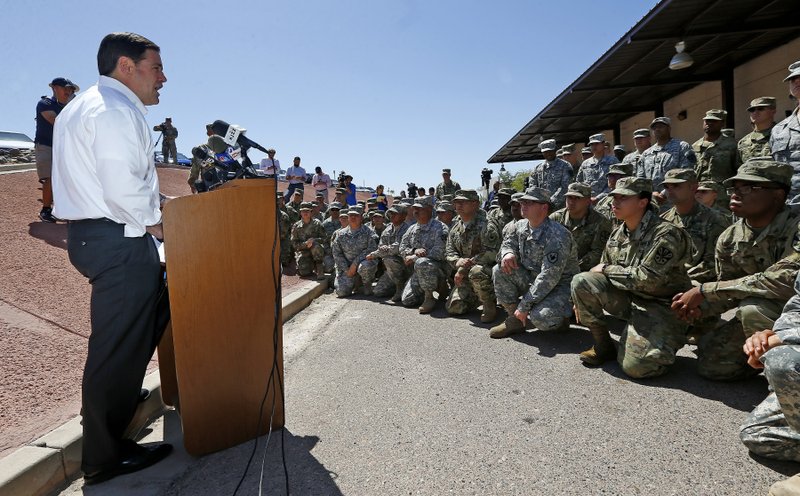
Some National Guard members have started arriving at the U.S.-Mexico border with more expected as federal government officials continue to discuss what they’ll do about illegal immigration. The Republican governors of Texas, Arizona and New Mexico on Monday committed 1,600 Guard members to the border, giving President Donald Trump many of the troops he requested to fight what he’s called a crisis of migrant crossings and crime. The only holdout border state was California, led by Democratic Gov. Jerry Brown, who has not announced whether troops from his state’s National Guard will participate and has repeatedly fought with Trump over immigration policy. Under the federal law Trump invoked in his proclamation calling for National Guard troops, governors who send troops retain command and control over their state’s Guard members and the U.S. government picks up the cost. Brown’s spokesman, Evan Westrup, said California officials still are reviewing Trump’s troop request. Trump said last week he wants to send 2,000 to 4,000 National Guard members to the border, issuing a proclamation citing “the lawlessness that continues at our southern border.” Trump administration officials have said that rising numbers of people being caught at the southern border, while in line with seasonal trends in recent years, require an immediate response. Apprehensions are still well below their historical trends during the terms of former presidents George W. Bush and Barack Obama, both of whom also deployed the Guard to the border. In Mexico City, a caravan of Central American migrants that had been heading north stopped in the Mexican capital. The caravan had sparked furious criticism from Trump, followed days later by his National Guard border protection deployment plan. Organizers said they never intended to go to the U.S. border. Arizona Gov. Doug Ducey told a group of soldiers preparing to deploy from a Phoenix military base that their “mission is about providing manpower and resources” to support agencies on the border and denied that there was a political motive. “I don’t think this is a partisan issue or an identity issue,” he said. “You show me somebody who is for drug cartels or human trafficking or this ammunition that’s coming over a wide-open and unprotected border here.” Texas Gov. Greg Abbott told San Antonio radio station KTSA that he would add about 300 troops a week until the total number reaches at least 1,000 troops. Some Guard members will be armed if they are placed in potential danger, Abbott said, adding he wanted to downplay speculation that “our National Guard is showing up with military bayonets trying to take on anybody that’s coming across the border, because that is not their role.” There is no end date for the deployment, Abbott said: “We may be in this for the long haul.” New Mexico Gov. Susana Martinez’s office said that more than 80 troops would deploy later this week. They will be the first of an expected 250 Guard members from New Mexico to serve on the border. South Carolina Gov. 6 a Republican, offered to send members of his state’s Guard as well. South Carolina sent troops to the border during Operation Jump Start, the border deployment ordered by Bush in 2006. Trump has said he wants to use the military at the border until progress is made on his proposed border wall, which has mostly stalled in Congress. Defense Secretary James Mattis last Friday approved paying for up to 4,000 National Guard personnel from the Pentagon budget through the end of September. Mexico’s foreign relations secretary said his government is evaluating its cooperation with the United States. Luis Videgaray said in a Monday interview with local media that he will give results of the analysis to President Enrique Pena Nieto in coming weeks. The country’s Senate passed a resolution last week saying Mexico should suspend cooperation with the U.S. on illegal immigration and drug trafficking in retaliation for Trump’s move. But Videgaray said “no decision has been taken to reduce or suspend any mechanism or cooperation.” Joel Villarreal, the mayor of Rio Grande City in Texas, said he did not agree with what he characterized as “the militarization of the border.” “It’s not good for business, to be frank with you,” Villarreal said. Republished with the permission of the Associated Press.
House to vote on Donald Trump’s $1.6B border wall request next week
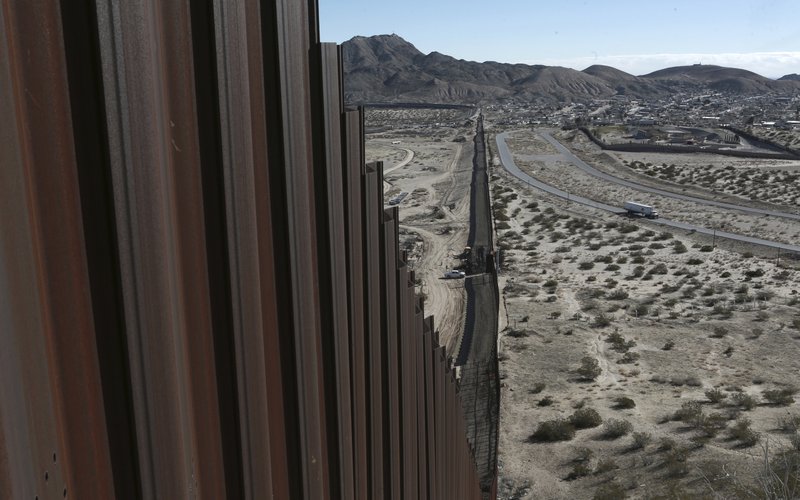
House Republicans are moving next week to fund President Donald Trump‘s $1.6 billion request to begin construction of his oft-promised wall along the U.S.-Mexico border. Aides said Tuesday evening that GOP leaders have decided to attach the money – to build 74 miles of fencing and levee wall in the Rio Grande Valley in Texas and near San Diego – to a spending bill for the Defense Department and a handful of other agencies like the Department of Veterans Affairs. The wall money is strongly opposed by Democrats and some Republicans. But Trump is insistent on it and the GOP plan would give Trump a much-needed victory on Capitol Hill after the failure of the Trump-backed effort to repeal and replace the Obama health law. Adding the wall money to the defense spending measure, which includes huge increases for the Pentagon, would appear to ensure its passage through the House, despite opposition among some border state Republicans, and could set up a clash with Senate Democrats. Trump has promised that Mexico would pay for the wall but hasn’t come up with a plan to force it to actually do so. Taxpayers will instead foot the bill. House Majority Leader Kevin McCarthy, R-Calif., announced Tuesday that GOP leaders had abandoned a plan to bundle all 12 of the annual spending bills for the budget year beginning Oct. 1 into a single omnibus package. That appeared to be too much for rank-and-file Republicans to digest, so McCarthy instead announced that funding for the Pentagon, the VA and the Energy Department would be tied together in a smaller, national security-focused measure. A McCarthy aide and a spokeswoman for Appropriations Committee Chairman Rodney Frelinghuysen, R-N.J., confirmed the plan to include the wall money in next week’s bill. But there probably won’t be an up-or-down vote on the funding. Republished with permission of The Associated Press.
Alabama exports surging in unexpected corners of the world
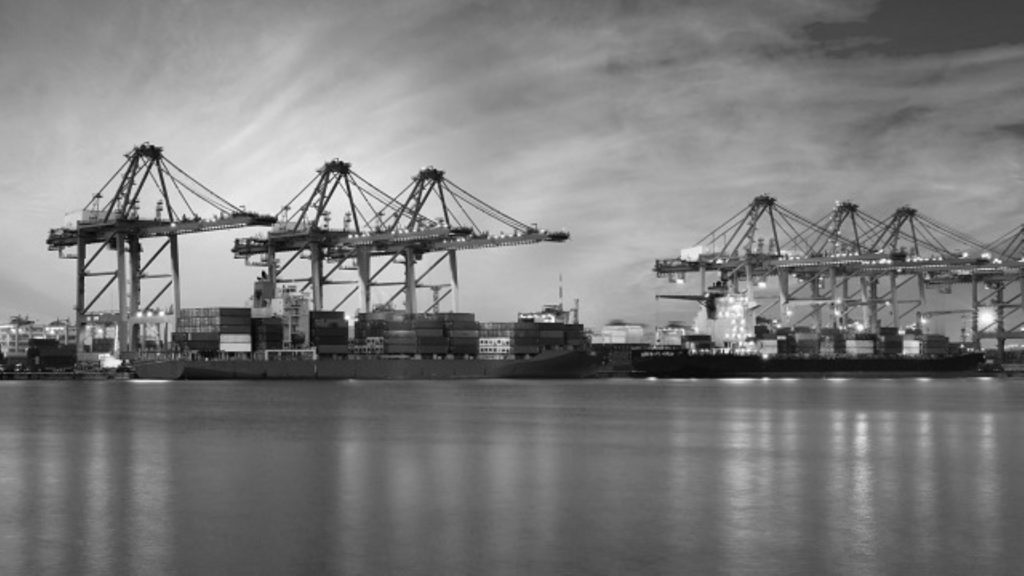
It’s clear that 2016 was a stellar year for Alabama exports, with rising shipments in a number of markets worldwide, signaling even more optimism for the future. The top five destinations for state goods and services – Canada, China, Germany, Mexico and the United Kingdom – remained relatively unchanged from 2015 and most showed year-over-year growth. Overall, Alabama-made goods were shipped to 189 countries. A number of them, while not among the top five, showed significant growth in 2016, including Kuwait, Russia, Taiwan and the United Arab Emirates. The Alabama Department of Commerce is always studying trade trends among state businesses and manufacturers, using the information to plan seminars and trips aimed at helping companies boost their export business, said Hilda Lockhart, director of Commerce’s Office of International Trade. Economic engine With Alabama’s 2016 exports reaching a record $20.55 billion, increasing 6.4 percent from the previous year, officials are looking to build on that momentum, Lockhart said. “We know rising exports for Alabama companies in overseas markets means greater potential for new jobs and investment back home,” Lockhart said. “International trade is truly a local economic engine, and Alabama workers and communities benefit from the growth.” U.S. Commerce Department figures show the state’s exports have risen 15 percent since 2011 and 48 percent since 2006. Vehicles are the state’s top export, by a large margin. Other key categories include chemicals, primary metals, paper products and non-electrical machinery, a category that includes combustion engines, agricultural machinery, metalworking machine tools and much more. Lockhart offered a closer look at some of the fastest-growing markets for Alabama exports, and what’s driving them: KUWAIT: Alabama’s exports to the Persian Gulf country increased to $104.9 million in 2016, a 285 percent spike from the previous year. The largest increases were in fabricated metal products, chemicals and paper. “This year Alabama was Kuwait’s No. 1 trading partner in the nation for fabricated metal products, perhaps due to the country’s recent expenditures on various hydrocarbon and petrochemical refineries, such as the $10 billion Olefins 3 plant,” Lockhart said. Currently in the pre-execution phase, the Olefins 3 plant will produce 1.4 million tons of ethylene a year when it is completed. The petrochemical is commonly used in the manufacturing process. RUSSIA: Shipments of state exports to Russia rebounded in 2016 to $102.1 million, after a poor showing the previous year, with major increases in the export of non-electrical machinery, chemicals and paper. Alabama was Russia’s No. 5 trading partner among U.S. states for non-electrical machinery products.Russia’s demand for machinery is “driven by the government’s strategy to modernize Russian industry across several sectors, including power generation, transportation, defense, automotive and aerospace,” according to the U.S. Foreign Commercial Service. Lockhart said the drop in exports in 2015 likely occurred because of the contraction in the price of oil that year, which caused a recession in Russia and other oil-producing countries. TAIWAN: Exports from Alabama to Taiwan nearly doubled in 2016, increasing to approximately $200 million. The largest gains were in chemicals, computer and electronic products, and paper. “Chemical exports alone accounted for more than half of the 2016 total, showing a two-year increase from $19.6 million in 2014 to $102.7 million in 2016,” Lockhart said. The state was Taiwan’s No. 6 trading partner in the nation for chemicals, predominantly in the category of basic chemicals, which include industrial gases used in the semiconductor production process. Lockhart said the semiconductor industry, including manufacturing, design and packaging, is a cornerstone of the Taiwanese IT economy, so it is likely that the increased exports are feeding into this sector. UAE: Alabama firms shipped $467.8 million in exports to the United Arab Emirates in 2016, an increase of more than 100 percent compared to exports just two years earlier. Much of the growth took place in the categories of transportation equipment, non-electrical machinery and chemicals. The state was the UAE’s No. 5 trading partner in the U.S. for transportation equipment, with this category alone accounting for $396.2 million of the export total for the year. “Aerospace products make up the bulk of these transportation equipment exports as the UAE develops its burgeoning satellite and Mars mission programs, expands its military and increases investment in the commercial airline industry,” Lockhart said. Meanwhile, other up and coming markets have shown significant growth over the past five years, and they could be potential targets of new, increased efforts to fuel trade, Lockhart said. The countries include Vietnam, Oman, the Bahamas, Denmark, Finland, Kenya, Liberia, Hungary and Bosnia-Herzegovina. This story originally appeared on the Alabama Department of Commerce’s Made in Alabama website. Republished with permission of Alabama NewsCenter.
Donald Trump’s border wall with Mexico faces all kinds of obstacles

President Donald Trump has now laid out exactly what he wants in the “big, beautiful wall” that he’s promised to build on the U.S.-Mexico border. But his effort to build a huge barrier to those attempting to enter the U.S. illegally faces impediments of its own. It’s still not clear how Trump will pay for the wall that, as described in contracting notices, would be 30 feet (9 meters) high and easy on the eye for those looking at it from the north. The Trump administration will also have to contend with unfavorable geography and many legal battles. A look at some of those obstacles: MONEY Trump promised that Mexico would pay for his wall, a demand Mexico has repeatedly rejected. Trump’s first budget proposal to Congress, a preliminary draft that was light on details, asked lawmakers for a $2.6 billion down payment for the wall. An internal report prepared for Homeland Security Secretary John Kelly estimated that a wall along the entire border would cost about $21 billion. Congressional Republicans have estimated a more moderate price tag of $12 billion to $15 billion. Trump himself has suggested a cost of about $12 billion. It’s unclear how much money Congress will approve. Lawmakers have been balking at his plans to sharply cut other federal spending to pay for the wall and other boosts to border security, while increasing military spending. White House spokesman Sean Spicer told reporters this past week that the administration was still looking at how the wall would be funded, adding that it hasn’t given up on Mexico footing the bill. ___ GEOGRAPHY Roughly half of the 2,000-mile (3,200-kilometer) U.S.-Mexico border is in Texas and marked by the winding and twisting Rio Grande. A 1970 treaty with Mexico requires that anything built near that river not obstruct its flow. The same treaty applies to a stretch of border in Arizona, where the Colorado River marks the international boundary. Some fencing that is already in place along the frontier is built well off the river, in some places nearly a mile (about a kilometer) away from the border. Trump will have to navigate not only the treaty maintained by the International Boundary and Water Commission but also various environmental regulations that protect some stretches of border and restrict what kind of structures can be built and where. The contracting notices of March 17 say the Trump administration wants the wall dug at least 6 feet (almost 2 meters) into the ground. Along parts of the border in California, environmentally sensitive sand dunes required that a “floating fence” was built to allow the natural movement of the sand. ___ LEGAL CHALLENGES Nearly all of the land along the Texas border is privately held — much of it by people whose families have been in the region for generations — and buying their land won’t be easy, as Presidents George W. Bush and Barack Obama discovered. Lawyers for both administrations fought in court with private landowners. Obama’s efforts to buy privately held land in the Rio Grande Valley have carried over into Trump’s term. The Trump administration appears to be preparing for the legal fight and included a request for more lawyers to handle such cases in its budget proposal. Spicer said this past week the administration would “take the steps necessary” to fulfill Trump’s promise to secure the southern border. Republished with permission of The Associated Press.
FACT CHECK: Who needs a wall? Donald Trump says border is strong
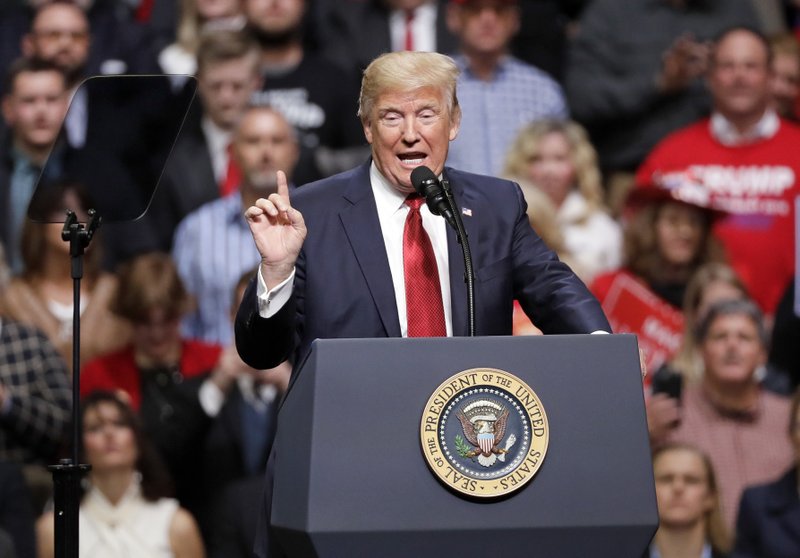
President Donald Trump says the border with Mexico is already “getting extremely strong” and would-be illegal crossers are giving up because they think, “we can’t get in.” All without the wall he promises to build, or any reported boost in deportations, or any surge in patrol agents. The boast was one of a number at a Tennessee rally Wednesday night that did not track with the facts. A look at some: TRUMP: “And by the way, aren’t our borders getting extremely strong? … We’ve already experienced an unprecedented 40 percent reduction in illegal immigration on our southern border, 61 percent — 61 percent since Inauguration Day. Sixty-one percent; think about it. And now people are saying we’re not going to go there anymore ’cause we can’t get in, so it’s going to get better and better.” THE FACTS: There’s not much evidence yet that Trump is driving down illegal immigration. It’s true that the number of border arrests dropped about 44 percent from January to February. But it’s too early to know if that will hold or what prompted it. Monthly and seasonal fluctuations are common. Trump hasn’t expanded the ranks of the Border Patrol or any other immigration or border-security agency. His orders haven’t yet changed the way the Border Patrol operates and so far there is no evidence that more people are being deported. The wall he’s promised to build isn’t up. The number of border arrests is the primary measure of the flow of illegal immigration at the border, though an imperfect one. If fewer people are arrested, that’s taken to mean fewer people are trying. Over recent decades, presidents have tried to have it both ways. They cite low arrest numbers to illustrate how their policies are dissuading people from crossing illegally. When arrest numbers are high, they say that’s because they’re being aggressive in enforcing the border. ___ TRUMP: Speaking of the appeals court that on Wednesday overturned his latest action limiting immigration from six Muslim-majority countries, “That 9th Circuit — you have to see. Take a look at how many times they have been overturned with their terrible decisions. Take a look.” THE FACTS: Other appeals courts have seen their decisions overturned at a higher rate than the 9th Circuit. In the most recent full term, the Supreme Court reversed eight of the 11 cases it heard from the San Francisco-based court. But the Atlanta-based 11th Circuit went 0 for 3 — that is, the Supreme Court reversed all three cases it heard from there. And over the past five years, five federal appeals courts were reversed at a higher rate than the 9th Circuit. The 9th Circuit is by far the largest of the 13 federal courts of appeals. In raw numbers, more cases are heard and reversed from the 9th Circuit year in and year out. But as a percentage of cases the Supreme Court hears, the liberal-leaning circuit fares somewhat better, according to statistical compilations by the legal website Scotusblog. The very act of the Supreme Court’s agreeing to hear a case means the odds are it will be overturned; the high court reverses about two-thirds of the cases it hears. ___ TRUMP: “Even liberal democratic lawyer Alan Dershowitz, good lawyer, just said that we would win this case before the Supreme Court of the United States.” THE FACTS: Not exactly. Dershowitz predicted Trump would win a Supreme Court showdown over his immigration action if the court focuses heavily on the law that gives him broad authority on the matter. If the court takes Trump’s campaign statements into account, though, Dershowitz told CNN, “he will lose.” Many experts think the case would be close because the president does have a lot of leeway in immigration. But if a policy is seen as having a religious test, that could run afoul of the First Amendment in the eyes of the justices. In the campaign, Trump openly called for keeping Muslim visitors out of the country. As president, his executive action is not explicitly against Muslims but would apply to people coming from six countries with mainly Muslim populations. ___ TRUMP: Speaking of the request in his new budget for a $54 billion increase for the Pentagon, “Our budget calls for one of the single largest increases in defense spending history in this country.” THE FACTS: Trump’s proposed increase, 10 percent higher than the Defense Department’s current budget, is large, but a long way from the highest boost ever. In just the past 40 years, there have been eight years with larger increases in percentage terms than the one he’s now proposing. In the early 1980s, for example, defense spending was increased dramatically as the Cold War with the Soviet Union intensified. The 1981 Pentagon budget saw a nearly 25 percent increase. And the proposed expansion pales in comparison with earlier times. Military spending consumed 43 percent of the economy in 1944, during World War II, and 15 percent in 1952, during the Korean War. It was 3.3 percent in 2015, says the World Bank. ___ TRUMP: “I’ve already authorized the construction of the long-stalled and delayed Keystone and Dakota Access pipeline. I’ve also directed that new pipelines must be constructed with American steel. They want to build them here, they use our steel. We believe in two simple rules. Buy American and hire American.” THE FACTS: His executive action calls for U.S. steel and pipes to be used “to the maximum extent possible and to the extent permitted by law.” With all that wiggle room, it’s not a guarantee of U.S. content. It’s also not the final word on the matter — the memorandum gives the commerce secretary until July to deliver a plan supporting the initiative. ___ TRUMP: “We are going to repeal and replace horrible, disastrous Obamacare. If we leave Obamacare in place, millions and millions of people will be forced off their plans” as insurers flee the market. “It’s a catastrophic situation. And there’s nothing to compare anything
House Speaker Paul Ryan gets firsthand look at US-Mexico border
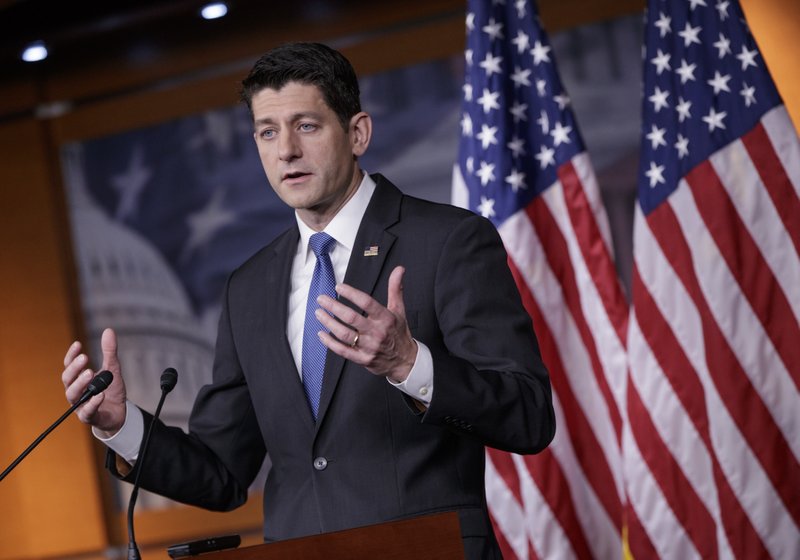
U.S. House Speaker Paul Ryan visited the Rio Grande valley on Wednesday for a firsthand look at the U.S.-Mexico border as the Trump administration steps up immigration enforcement and prepares to ask Congress to pay for a border wall. It was the first time the Wisconsin Republican had visited the border, and protesters gathered to meet his arrival in McAllen, Texas, with hand-painted signs protesting Trump policies. Ryan led a small group of fellow Republicans on the trip, including Rep. Michael McCaul of Texas, who chairs the Homeland Security Committee in the House. In McAllen, Ryan came face to face with some of the challenges that arise in building a wall along the entire 2,000-mile border, which includes much remote and inhospitable terrain as well as the Rio Grande, the river between Texas and Mexico. He met with local officials and toured the area by boat and helicopter, and even briefly rode on a horse. “When you see with your own eyes the many challenges facing our law enforcement professionals along the border, it gives you even greater respect for the work that they do day-in and day-out. But more tools and more support are needed for them to do their jobs effectively,” Ryan said in a statement after the visit. “Congress is committed to securing the border and enforcing our laws, and together with the Trump administration, we will get this done.” President Donald Trump has not yet formalized his request to Congress to pay for the wall he promised during his campaign. It’s expected to cost $15 billion or more, making it uncertain whether Congress would go along. Trump has promised Mexico will pay, but Mexico says it won’t, and Trump has never spelled out how that would happen, anyway. The administration is rolling out new policies to fight illegal immigration and subjecting millions of people who are in this country to deportation, even for minor infractions. A group called La Union del Pueblo Entero announced it was protesting Ryan’s visit “in order to show the opposition of border residents to the current presidential administration’s immigration and border policies.” According to The Monitor newspaper, protesters were asking to meet with Ryan, but he did not meet with them. Republished with permission of The Associated Press.
Daniel Sutter: Who will pay for the wall?
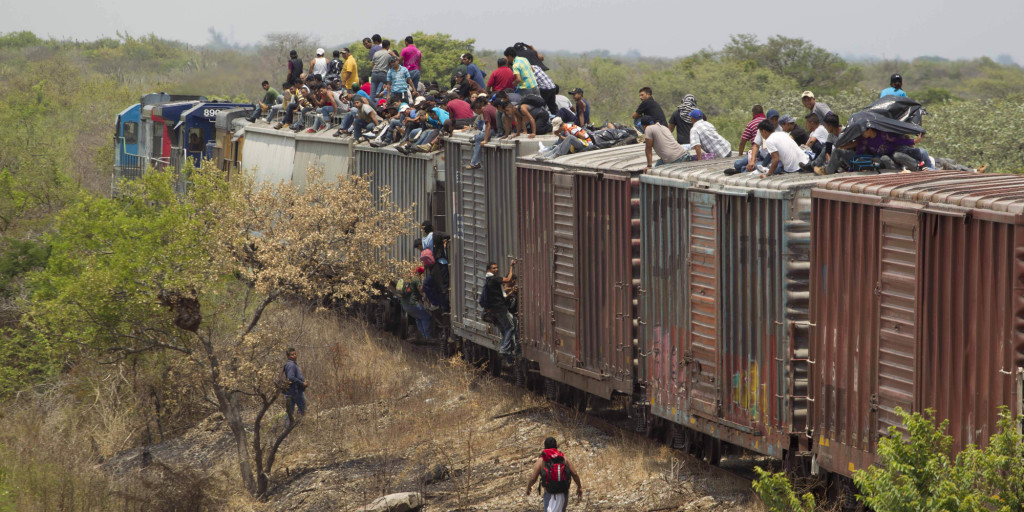
The Trump administration recently floated a plan for a twenty percent tariff (or tax) on goods imported from Mexico to pay for the southern border wall. During the campaign, Mr. Trump promised to both build the wall and make Mexico pay for it. Does taxing imports from Mexico ensure this? The answer depends on the economics of taxation known as tax incidence. Economics allows us to assess who really pays a tax, and one important result shows that the person who must send the payment to the government is not who really pays. So a tariff on imports from Mexico will not necessarily make Mexico pay for the border wall. I will only focus today on who pays the tariff. I will not address other questions about the proposal: Is a border wall a good idea, or going to effectively stem illegal immigration? Is a tariff on imports from Mexico good policy, or even legal given our nation’s trade agreements? And, would the tariff produce enough revenue to cover the wall’s construction costs? International trade involves foreign currencies and the balance of payments, which seem really complicated. A more familiar case like a gas tax can illustrate most of the economics. Suppose we imposed a $1 per gallon gas tax and used the revenue to clean up the environment. Could we validly say that oil companies were paying for the cleanup? As drivers, we might suspect that the oil companies would just pass the tax on in the form of higher prices. This reaction is correct. Incidence depends on how much the price at the pump rises in response to the tax. Drivers fully pay the tax if the price rises by a full $1, while oil companies pay the tax if the price remains unchanged. Oil companies will sell less gas than before, possibly a lot less, if they try to pass the entire tax on to consumers. As anything becomes more expensive, people will buy less of it; this is the law of demand. The price of gas generally will usually rise some, but less than the full $1. Two factors determine the price rise: how much less gas drivers use as the price rises, and the willingness of oil companies to accept a lower price (net of the tax) to avoid selling less gas. These factors are called the elasticities of demand and supply. What does not matter is who the law makes send the tax revenue to the government. Politicians like to leverage the mistaken beliefs about who pays taxes. For example, Social Security and Medicare payroll taxes are legally split between employers and workers. Equal cost sharing is a legal fiction, as elasticities determine the distribution of the burden of the payroll tax. Tariffs on Mexico differ from a gas tax because not all suppliers of these goods will be taxed. Companies in the U.S. producing goods in competition with imports from Mexico will not be taxed, nor will imports from Europe or Asia. The supply of untaxed goods from the U.S., Europe and Asia will limit price increase, and thus whether American consumers or Mexican firms really pay the tariff. But even saying that “Mexico” pays the tariff is highly misleading. Mexico is a nation of 130 million people, with thousands of firms exporting to the U.S. Some of these firms are owned by American or European or Asian companies, and many Americans invest in the Mexican companies. The economic burden of taxes does not fall on firms or nations but ultimately on workers and investors. The shorthand that “Mexico” pays some of the tariff is literal nonsense; only real persons pay taxes, including in this case some Americans. The border wall may or may not be a good idea. But taxing goods imported from Mexico does not guarantee that Mexican citizens will pay for the wall. Supply and demand ultimately determine who pays taxes, not politicians’ pronouncements. Politicians frequently exploit confusion over complicated economic questions to make government projects appear better than they are in reality. Eventually, however, reality prevails. ••• Daniel Sutter is the Charles G. Koch Professor of Economics with the Manuel H. Johnson Center for Political Economy at Troy University and host of Econversations on TrojanVision. The opinions expressed in this column are the author’s and do not necessarily reflect the views of Troy University.
Mexicans begin to unite in fight against Donald Trump’s plans

Mexicans are beginning to debate how to fight back against U.S. President Donald Trump‘s aggressive stance on trade and immigration. Prominent political figures have suggested the country expel U.S. law enforcement agents, stop detaining Central American migrants or no longer inspect northbound trucks for drug shipments. Some activist groups on Friday were calling for a boycott of American brands. Former President Felipe Calderon said Thursday that “we have to design a policy of retaliation” for Trump’s proposed plans, which include making Mexico pay for the border wall he wants to build. “We have to put U.S. security issues under review … including the presence of (U.S.) agents” on Mexican soil, Calderon told local news media. The comments came after current President Enrique Pena Nieto scrapped a planned Tuesday meeting with Trump after the American president tweeted that it would be better to cancel if Mexico wasn’t willing to pay for his proposed wall. Ruben Aguilar, a political consultant who was spokesman for former President Vicente Fox, noted Friday that Mexico has been stopping Central American migrants before they reach the U.S. border “as part of the logic between two friendly countries.” He suggested that Mexico could say, “Okay, I’m not going to stop Central Americans anymore,” and added, “Now if our two countries aren’t friends anymore, that is a card we could play to increase the pressure.” “Drugs are another” possible card, Aguilar said. “If you want to stop them with your wall, well we won’t stop them anymore, let them go through.” Trump appeared to try to defuse the spat between the two countries Friday, saying, “Great respect for Mexico, I love the Mexican people.” “We have really, I think, a very good relationship, the president and I, and we had a talk that lasted for about an hour this morning, and we are going to be working on a fair relationship,” Trump said. The office of the Mexican president confirmed the call, calling it “constructive and productive,” but did not specifically mention the wall or other policies proposed by Trump it doesn’t agree with. Pena Nieto’s government instead stressed “the need for both countries to continue working together to stop the trafficking of drugs and the flow of illegal weapons.” “Both presidents recognized their clear and very public differences on this very sensitive issue, and agreed to solve those differences as part of an integrated discussion of all aspects of the bilateral relationship,” Pena Nieto’s office said. “The two presidents also agreed, for the moment, to no longer speak publicly about this controversial topic.” On Friday afternoon, Mexican business magnate Carlos Slim called for “national unity” in the face of Trump’s hostility, and said the country should have a measured response “without getting angry but without surrendering.” Slim called for a “modern, not protectionist” national program of substituting imported products, the vast majority of which come from the United States. But he stopped short of calling for a boycott of American goods. “I think it is an error to think about boycotting companies,” Slim said. “What we should do instead is buy what is produced in Mexico.” A coalition of Mexican farm and consumer groups, however, did call for such a boycott when it raised the battle flag on Jan. 18, two days before Trump took office. The campaign’s slogan — “Consumers cry war!” — echoes the first line of Mexico’s national anthem as it calls on Mexicans to buy national products. “The statements and threats from the U.S. president-elect are irrational and unacceptable, but they should awaken a rational response, and lead us to radically change in our model of national development, and recover sovereignty over our food system,” the coalition said in a statement. In a country where U.S. chain restaurants, coffee shops and stores are now ubiquitous, social media users created long strings of hashtags such as #AdiosStarbucks #AdiosCostco, #AdiosWalmart, #AdiosMcDonalds, #AdiosProductosGringos , #ConsumoProductosMexicanos. Peter Schechter, senior vice president for strategic initiatives at the Atlantic Council, said the dispute may awaken underlying currents of resentment in Mexico. The U.S. took away almost half of Mexico’s territory in the 1848 Mexican-American War, though that historic resentment had faded in the last three decades. “All this does is to solidify the view that an attempt to negotiate with the United States under this administration is impossible, and that we should break from the United States,” Schechter said. “This argument has moved from incredulous, to possible in people’s minds. The next step is it moves from possible, to the right thing, and that step is not that far.” Republished with permission of The Associated Press.
Sean Spicer says 20 percent tax on Mexican imports just an option

The Latest on President Donald Trump (all times EST): 4:50 p.m. White House Press Secretary Sean Spicer now says slapping a 20 percent tax on imports from Mexico is just one of several options on the table for paying for a wall along the southern border. Spicer says President Donald Trump has yet to make a final decision about how the U.S. will recoup the costs of his proposed border wall. Spicer had said earlier Thursday that Trump wanted to slap a 20 percent tax on all imports from Mexico and predicted the tax would generate $10 billion a year. He had told reporters on Air Force One that Trump has discussed the idea with congressional leaders and wanted to include the measure in a comprehensive tax reform package. But Trump’s chief of staff Reince Priebus said later that the administration has “a buffet of options” to pay for the wall. ___ 4:45 p.m. President Donald Trump still knows how to win a television time slot. ABC reached 7.5 million viewers for its Wednesday night interview special of the president speaking to anchor David Muir. It was billed as Trump’s first network television interview since his inauguration last week. The special beat every other program competing at 10 p.m., according to the Nielsen company. CBS’ “Code Black” drama came in second with 5.6 million viewers. ___ 4:45 p.m. A Democratic congressman says he got a call from President Donald Trump, who wants to meet with him to discuss the price of prescription drugs. Maryland Rep. Elijah Cummings said Thursday he received the short but cordial call a day earlier “to my surprise.” Cummings says Trump told him they would not agree on everything, but they could find some common ground on trying to address the rising costs of prescription drugs. Cummings says he’s looking forward to the meeting, which hasn’t been scheduled yet. Cummings also says Trump asked about the congressman’s special assistant, Katie Malone, who was injured in a fire at her home this month that killed six of her nine children. Cummings says the president said he wanted to make a contribution to help the family and expressed sincere sympathy. ___ 4:40 p.m. President Donald Trump has signed his first presidential proclamation, declaring this week “National School Choice Week.” The proclamation states that because education is important, parents should have the right to a “meaningful choice” about where their children goes to school. Charter schools and school choice are expected to be major elements of federal education policy in Trump’s administration. Betsy DeVos, Trump’s nominee for education secretary, has spent more than two decades advocating for school choice programs. Such programs provide students and parents with an alternative to a traditional public school education. DeVos is awaiting a Senate vote on her nomination. The proclamation adds that a renewed commitment to expanding school choice can make a great education possible for every child in America. ___ 3:35 p.m. President Donald Trump wants to pay for his proposed southern border wall by slapping a 20 percent tax on imports from Mexico. White House spokesman Sean Spicer says Trump has discussed the idea with congressional leaders and wants to include the measure in a comprehensive tax reform package. Spicer spoke to reporters on Air Force One as Trump flew back from a Republican retreat in Philadelphia. He says that taxing imports from Mexico would generate $10 billion a year and “easily pay for the wall.” Spicer says discussions are continuing with lawmakers to make sure the plan is “done right.” But he says it “clearly provides funding” for the wall. ___ 3:30 p.m. President Donald Trump’s chief White House strategist says that the media should “keep its mouth shut.” In an interview with The New York Times, published Thursday, Bannon said that the media is the “opposition party” of the new administration and “should be embarrassed and humiliated” by the unanticipated election result. The article cites Bannon as referring to himself at one point as “Darth Vader.” Asked if he was concerned that press secretary Sean Spicer lost credibility after a forceful opening press conference peppered with false information, Bannon replied, “we think that’s a badge of honor.” He adds, “The media has zero integrity, zero intelligence and no hard work.” ___ 3:15 p.m. Vice President Mike Pence is offering Republican lawmakers a preview of the upcoming Supreme Court pick. He says President Donald Trump will nominate a “strict constructionist” to the high court. Pence is speaking to House and Senate Republicans at a retreat in Philadelphia. He notes Trump plans to announce the Supreme Court pick next week and says he can “already tip you off.” Pence says the choice will be a “strict constructionist,” or a jurist who supports a narrow reading of the U.S. Constitution. The vice president says the choice will have a “top-notch legal mind” and a “commitment to the Constitution.” ___ 2:45 p.m. The United Nations hopes that any measures President Donald Trump takes on refugees are temporary, citing U.S. leadership in resettling people forced to flee their homes. U.N. spokesman Stephane Dujarric told reporters Thursday that taking in refugees is especially important when the world has seen the largest movement of migrants since World War II. He said it’s a basic principle of the United Nations that “refugees need solidarity and need help,” and at this time there’s never been a greater need for their protection. A draft executive order obtained by The Associated Press shows Trump intends to stop accepting Syrian refugees and to suspend the United States’ broader refugee program for 120 days. According to the U.N., refugees total nearly 21.3 million, half of them under age 18. ___ 1:45 p.m. President Donald Trump is claiming that he and Mexican President Enrique Peña Nieto agreed jointly to cancel their planned meeting over disagreements about who will pay for Trump’s promised southern border wall. Trump says during a Republican House and Senate retreat in Philadelphia that, “The president of Mexico and


